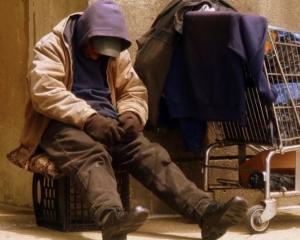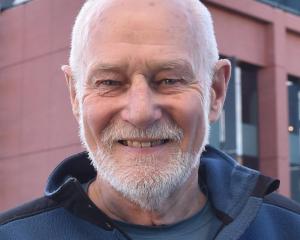Prime Minister Jacinda Ardern is set to announce details of how New Zealand will operate at alert level 2 from 1pm when the country will also be told of any new Covid-19 cases.
Cabinet will make its decision as to whether the country is ready to move from level 3 on Monday. But today, Ardern will reveal new level 2 details in an attempt to give people and businesses clarity around the next step.
She will be joined by director general of health Dr Ashley Bloomfield who will also reveal if there are any new Covid-19 cases.

Public venues, such as cafés and shops, can open under that advice and most schools will be allowed to reopen, as long as there is 1m physical distancing.
This earlier information advised against "non-essential inter-regional travel" - but domestic travel is expected to be a hotbed topic, with the tourism industry pushing for a relaxation of rules.
"We absolutely need a lifeline with regional travel," Skyline Enterprises CEO Geoff McDonald told NZME.
"If we can get some domestic tourism happening, get families and New Zealanders moving around, supporting our attractions, I think it will help all of us out."
He wanted to see the Government say today: "We trust you, you guys can get it right, you can get safe and effective systems in, and we can see local tourism return."
The New Zealand situation contrasts with that of the United States and United Kingdom, who are still battling to overcome the devastating impact of the pandemic. Overnight, the number of deaths in the UK passed 30,000 - it is second only to the US for the number of fatalities.
There have been 3.6 million cases of Covid globally, with the overall death toll now at 260,000. In New Zealand, there have been 21 deaths - more than half from one Christchurch cluster, the Rosewood rest home.
The Government's alert level guide says the country will move to alert level 2 when Cabinet is confident that Covid-19 is contained, and ministers are sure that it's safe.
The announcements today come as the number of new Covid-19 cases remains low.
<iframe src='https://players.brightcove.net/4915776650001/Skm7qXR5g_default/index.htm...' allowfullscreen frameborder=0></iframe>
Earlier today Bloomfield said New Zealand was still on track for a move to level 2, with no cases of recent community transmission and a vast improvement in contact tracing.
He added that masks will not be compulsory at level 2 and, while physical distancing will be more important than ever, people should be able to give their friends and family a "quick hug".
From April 18 to 20, it had taken 10 days to isolate 80 per cent of close contacts from the first onset of symptoms from the source of a Covid-19 chain of transmission (the index case).
Today that has been halved to five days, and Bloomfield said the Ministry of Health wanted to shave it to four days in line with a benchmark in the system audit by infectious diseases specialist Dr Ayesha Verrall.
"I think that's very promising," Bloomfield said of the improvement.
A quick hug with your mates at level 2
Bloomfield said the health principles of level 2 were the same: physical distancing, hand hygiene, getting tested early for any symptoms, and staying home if sick.
"Hugs and handshakes - if you don't know someone, be really rigorous around physical distancing. But if it's close friends and family, you want to be careful of course, but it's starting to return to normal.
"I would imagine it would still be elbow bumps and quick hugs."
Physical distancing was more important because people will be interacting a lot more with friends as well as strangers, he said.
"We need to maintain real vigilance around physical distancing, particularly in situations where it's not quite as controlled like a work environment or a school environment."
In those higher-risk environments, such as public transport, he said people may wish to wear a mask, but they will not be compelled to.
"We've just had another look at the evidence. People may wish to use a mask. If they know how to use it properly, that's fine, but at this point we won't be insisting on masking."
Some public health experts including Otago University epidiologist Professor Michael Baker have been calling for mass masking to be considered.
Bloomfield said it was common for people in South East Asia to wear masks in public, but that was because they had a cold and were trying to prevent germs from spreading.
"One of our key public health principles is: don't go out if you've got a cold, don't go to work, don't send children to school if they have a respiratory infection."
He said that he expected testing to be ramped up again from next week, once DHBs had finalised surveillance plans.
Daily testing has fallen from a peak of 6961 on April 23, which was partly due to the lull over Anzac weekend. It has been under 5000 for the past four days.
"We want to keep the testing rates up."













